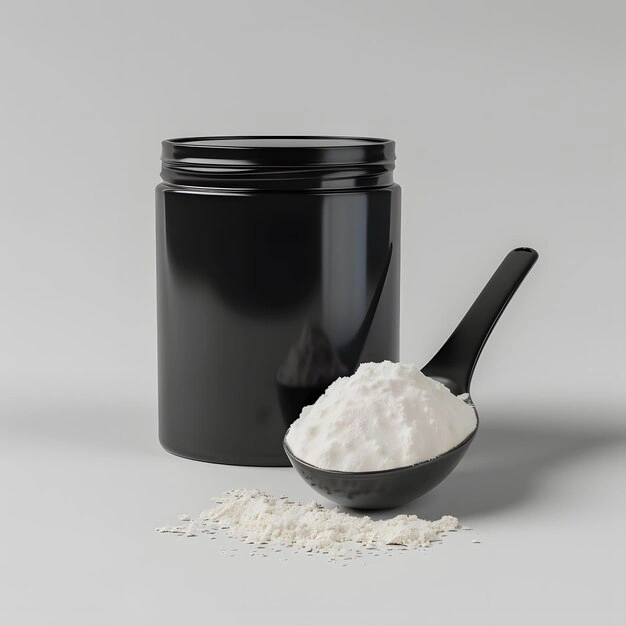What Are Electrolytes?
Electrolytes play a vital role in maintaining the balance and functioning of various physiological processes within the body. From regulating fluid balance to supporting muscle function and nerve signaling, electrolytes are essential for overall health and wellness. But what exactly are electrolytes, and why are they so important? Let’s explore the science behind electrolytes and how they affect different aspects of your health, from energy levels to muscle cramps.Electrolytes are minerals within the body that carry an electrical charge when dissolved in water. They assist in regulating various body functions, such as the balance of fluids, transmission of nerve impulses, and muscle contractions. The most common electrolytes include sodium, potassium, calcium, magnesium, chloride, bicarbonate, and phosphate.
These minerals are very essential for homeostasis—your body's internal balance. It makes sure cells, tissues, and organs are working just fine. Electrolytes mainly reside in fluids that circulate within your body: blood, sweat, and urine, among others. Their levels are tightly regulated by the kidneys and other mechanisms.
How Do Electrolytes Impact the Body?
Electrolytes have a direct effect on many bodily systems. Their major functions are:Fluid Balance and Hydration
Electrolytes help regulate the movement of water within and between cells, tissues, and organs. The right balance of electrolytes in the body is essential for hydration and proper fluid distribution. For instance, sodium and potassium regulate the balance of water both inside and outside cells.Muscle Function and Contraction
Movement of Electrolytes Muscle contractions include heartbeats; they depend on the movement of electrolytes. Potassium and calcium play particularly key roles in muscle function because they facilitate the electrical impulses that trigger muscle contractions. An imbalance of electrolytes can result in muscle cramps, spasms, or weakness.Nerve Function and Communication
Electrolytes are vital for the transmission of nerve signals. They help to create and conduction of electrical impulses along nerves, thus enabling the muscle and organs to stay in contact with the brain. If the balance of electrolytes goes wrong, nerve function may become impeded, resulting in symptoms such as dizziness, confusion, and weakness.Regulation of Blood pH
Bicarbonate is one of the essential electrolytes, which maintains the pH level of blood in such a way that it does not become too acidic or too alkaline. Enzymatic reactions and other metabolic processes in the body require proper pH levels.Keeping the Heart Healthy
Electrolytes are required for the correct functioning of the heart. It enables the proper transmission of electrical impulses that regulate the heartbeat rhythm. Too much or less electrolyte will cause irregular heartbeat and other problems in the cardiovascular system.What Causes Electrolyte Imbalance?
An electrolyte imbalance is a state where the body contains an increased or decreased concentration of certain electrolytes. The reason for this might be:Dehydration
One of the main reasons for electrolyte imbalances is dehydration. You will lose the electrolytes in your body when you are not drinking enough water or lose excess fluid due to excessive sweating, vomiting, or diarrhea.High Intensity Physical Activity
You tend to lose some electrolytes in sweat whenever you are exercising or undergoing any physical activity, especially during hot weather. When you fail to replace those electrolytes, you might start feeling muscle cramps, dizziness, or even fatigue.Bad Diet
Electrolyte-deficient diet is one of the causes of electrolyte imbalance. For example, when people are not taking sufficient amounts of potassium or magnesium-rich foods, they will suffer muscle and nerve disorders. Appropriate amounts of fruits and vegetables, dairy, and whole grains in the diet help in maintaining the required electrolyte level.Medications
Other diseases, such as kidney disease, diabetes, and gastrointestinal disorders, can lead to an inability to maintain the normal levels of electrolytes in the body. Other drugs such as diuretics also cause imbalances of electrolytes because they enhance the excretion of electrolytes in urine.Electrolyte Imbalance Symptoms
Electrolyte imbalances can cause a variety of symptoms depending on which electrolyte is out of balance and how severe the imbalance is. Some common symptoms include:1. Muscle cramps or weakness
2. Fatigue or lethargy
3. Dizziness or lightheadedness
4. Nausea or vomiting
5. Irregular heartbeat or palpitations
6. Headaches
Confusion or irritability
When these symptoms arise, it's crucial to take care of the imbalance as soon as possible because severe electrolyte imbalances can lead to severe health complications.How to Replenish Electrolytes
Replacement of electrolytes is also important in achieving balance in the body. Some of the ways on how to replenish electrolytes include:Drinking Electrolyte-Rich Fluids
Consuming electrolyte-rich drinks can be one of the simplest methods of replenishing electrolytes. Electrolyte-infused water, coconut water, and sports drinks can rehydrate you; however, ensure that the amount of sugar present in the drink is minimal for some sports drinks.Eat Electrolyte-Rich Foods
A well-balanced diet is the best way to maintain electrolyte levels. Foods that are rich in electrolytes include:1. Potassium: Bananas, potatoes, spinach, avocados, and oranges
2. Sodium: Salt, celery, and olives
3. Magnesium: Almonds, spinach, and whole grains
4. Calcium: Dairy products, leafy greens, and fortified plant-based milk
5. Chloride: Table salt, tomatoes, and lettuce
Use Electrolyte Supplements
If you have not been getting sufficient electrolytes through foods and fluids, you would need electrolyte supplements. Urjiva provides the best plant-based electrolyte supplements to help you reach optimal hydration and ensure overall wellness.How Electrolytes Affect Energy Levels
Electrolytes directly affect your energy levels, especially when you are working out. You lose electrolytes through sweat during exercise, and if you do not replace them, you might feel tired or sluggish. Sodium, potassium, and magnesium are very important in maintaining energy levels because they help regulate fluid balance and muscle function.When your body is fully hydrated and has a proper level of electrolyte, you will gain improved endurance and focus, with fewer chances of developing muscle fatigue. On the other hand, improper electrolyte can leave you drenched and diminish your athletic ability.
Electrolytes Prevent Muscle Cramps
Muscle cramps are one of the common problems that arise during or after intense physical activity. They result from involuntary contractions of muscles, usually because of an imbalance of electrolytes such as potassium, calcium, or magnesium. These minerals control muscle contractions and relaxation, so when their levels drop, muscles can become tense and cramp.To prevent muscle cramps, one needs to keep hydrated and replenish the electrolytes lost through sweat. Balanced diet and use of electrolyte supplements from reliable brands like Urjiva help keep your muscles functioning at their best.
Why Choose Urjiva for Electrolyte Supplements?
At Urjiva, we are dedicated to providing premium nutritional solutions that support your overall health and wellness. Our electrolyte supplements are made with high-quality, plant-based ingredients that are designed to keep you hydrated, energized, and balanced.Whether you're an athlete, a fitness fanatic, or merely a person desiring to keep up with an ideal daily level of wellness, Urjiva's electrolyte products are designed for the best you. With emphasis on integrity, quality, and innovation, Urjiva is your journey to superior health.



